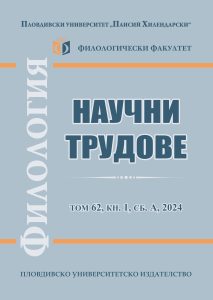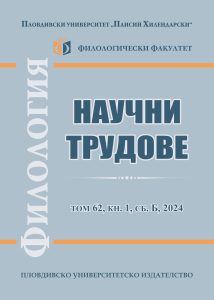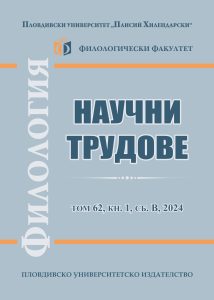VOL. 59, BOOK 1, PART А, 2021, pp. 186-197 Full text (Bg)
Author:
Yovka Tisheva
Affiliation: St. Kliment Ohridski University of Sofia
Abstract
The main goal of this article is to present observations on the syntactic structure of two of the verbs expressing positive feelings/emotional states: obicham (to love) and obozhavam (to adore). The valence frame of these verbs (also known as psychological verbs) comprises two arguments representing Experiencer and Theme (Object) of emotion. The possibilities for overt representation of thematic roles with two types of complements: noun phrases and subordinate clauses are analyzed. Obicham (to love) and obozhavam (to adore) belong to the subclass of stative predicates that allow for a stative reading only. In their argument structures that are analogous, the external argument represents Experiencer of emotion.
Key words: psychological verbs, subject-experiencer verbs, stative predicates













